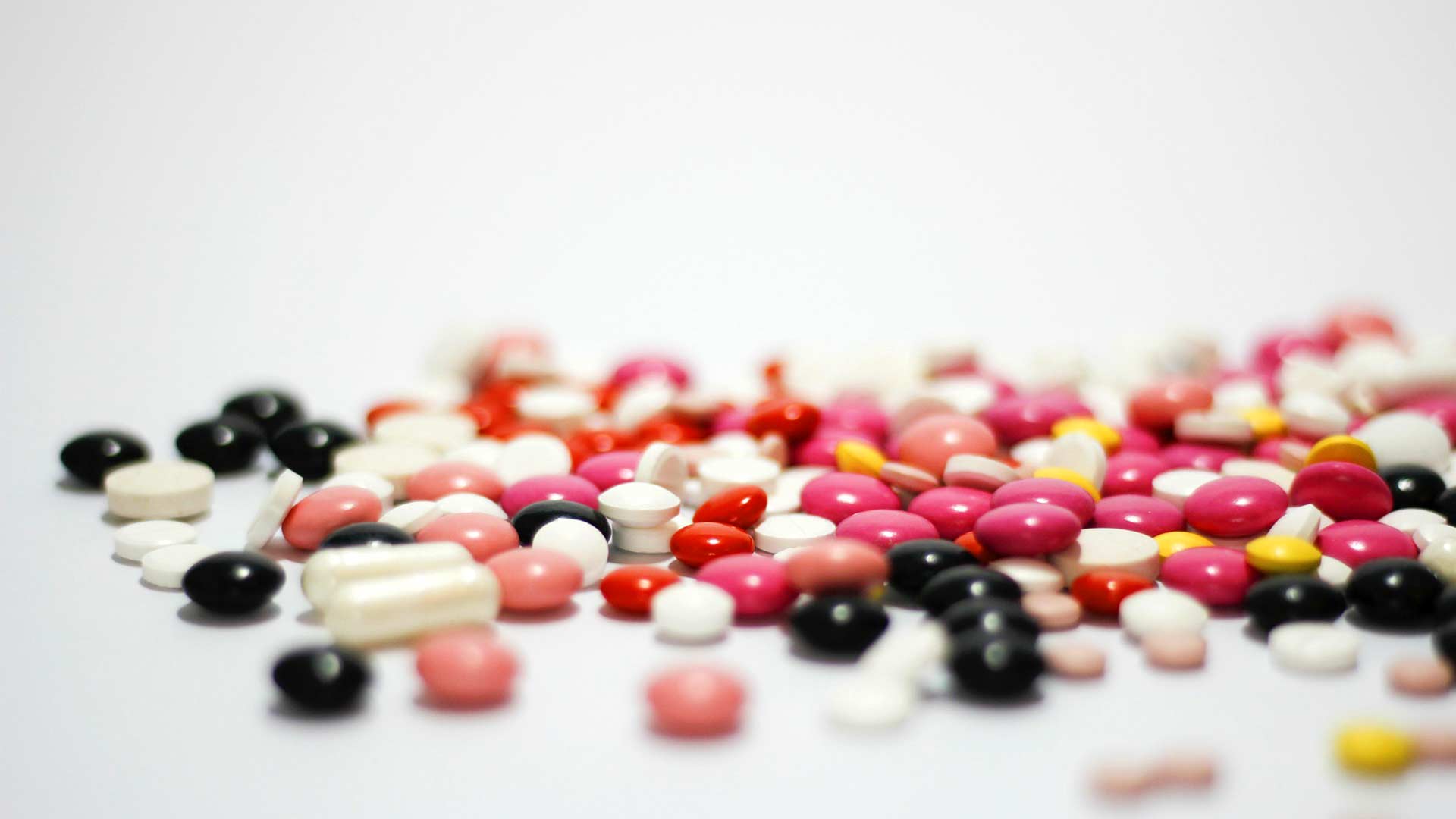Knowledge is power against the fake and substandard drug trade
Drickus Maartens • September 26, 2019
Beware the dangers of illicit and counterfeit medicines
The criminal trade in counterfeit and stolen medicines threatens hundreds of thousands of lives globally each year, often preying on the most desperate and vulnerable individuals. Public awareness and responsible pharmacy practice are key components of the concerted international effort to identify and eliminate these illegal products.
“Many of us have seen adverts on the internet for well-known medicines that are usually only available with a doctor’s prescription. Powerful painkillers or medicines for erectile dysfunction, for example, may be advertised for a fraction of the usual cost with no prescription required to order the medicine. This is just one of the many ways in which unscrupulous criminal organisations dealing in fake or stolen medicines operate,” explains pharmacist Ria Westerman of Medipost Pharmacy.
Fake, or counterfeit, medicines are products that are illegally manufactured in imitation of original pharmaceutical products, and often contain inappropriate amounts of the active ingredients or even none at all.
“Counterfeit medicines, apart from being ineffective as treatment, may even be contaminated with hazardous substances such as building cement, paint thinner or antifreeze. The intention is to sell these unregistered substances, instead of the real medicine, for profit to unwitting retailers or consumers,” she explains.
“These imitations can be very convincing, however sometimes it is possible to detect small differences in the appearance of the medicine or packaging when it is closely compared with the genuine article. If a consumer notices that a batch of medicine differs in colour, size, shape or packaging, or notices that the packaging appears to have been tampered with, they should contact their pharmacist for advice,” advises Westerman.
“The human toll of counterfeit medicines cannot be ignored. Several years ago, for example, counterfeit meningitis vaccines administered to children in Nigeria led to tragic consequences. This is because when children fell ill, their parents confirmed they had received the vaccine and meningitis was therefore ruled out as the cause of their illness, leading to many deaths.
“In another instance, counterfeit anti-malaria medication for treating fatal Falciparum Malaria, that in fact only contained sugar and resulted in over 1000 malaria deaths in Africa, was documented by the World Health Organization
[WHO],” she adds.
“Substandard medicines are also cause for concern. These are medicines that have been legitimately produced by the manufacturer but have, for one reason or another, failed to meet quality assurance standards or may have expired. By law, these products must be destroyed, however they may be illegally repackaged and sold by criminals who see an opportunity for making money with no regard for the health and safety of the patient who would take the medicine, believing it to have therapeutic value.”
According to Westerman, the illicit trade in medicines in South Africa often involves legitimate medicines that have been obtained illegally, and may be dangerous in the wrong hands. “These medicines may be sold very cheaply in this illegal trade without the buyer having to present a doctor’s prescription, which would ordinarily be required. The public should be aware that the quality of medicines purchased illegally could be substandard due to various factors, such as the conditions under which the medicine has been stored.”
While South Africa has not been as severely impacted by counterfeit and substandard medicine problems as many other African countries, particularly those in central and West Africa, the public and healthcare workers should be alert to the potential dangers and always remain vigilant.
According to Westerman, it is worthwhile to check the expiry dates marked on any medication. “If you notice that the expiry date is marked on an added-on label, which bears no other product information, this is unusual for medicines and should be checked. Peeling back the sticker could confirm whether it may be concealing an earlier expiry date, which would be an indication that the medicine is not fit for consumption and would need to be reported.”
The greatest protection against the dangers of counterfeit or substandard illegitimate medicines for healthcare consumers is to obtain medicines through reputable pharmacies that are registered with the South African Pharmacy Council (SAPC).
“Medicines dispensed by registered pharmacies, such as Medipost Pharmacy, that are supplied only by appropriately registered manufacturers and wholesalers offer the best possible reassurance against counterfeit and substandard medicines,” says Rentia Myburgh, Medipost Holdings’ group director of sales and marketing.
“The Medipost Holdings group offers an additional layer of protection, as the in-house supply and distribution service Kawari Wholesalers obtains medicines directly from pharmaceutical manufacturers, while the group logistics company, MediLogistics, transports the medicines to Medipost Pharmacy in accordance with the principles of Good Pharmacy Practice. Once the medicines have been dispensed, MediLogistics transports the patient-ready parcels to medicine collection points and directly to patients,” Myburgh explains.
Advice for the public
- Do not purchase medicines from unregistered websites or websites that offer to ship medicines to you from other countries.
- Do not buy medicines from acquaintances, informal traders, casual traders or anyone other than reputable registered pharmacies.
- Beware of any individual or pharmacy that offers you medicine that usually requires a prescription without asking you to present a doctor’s script.
- Compare your new medicine with the previous month’s supply of the same prescribed medicine. If you notice differences in the packaging or appearance of the medicine, discuss this with your pharmacist.
- Check the expiry dates on your medicine packaging. If there is more than one expiry date, or attempts have been made to conceal an expiry date, report this to your pharmacist.
“Awareness and responsible health consumerism can go a long way towards protecting the people of South Africa from the dangers of substandard and counterfeit medicines,” Westerman concluded.

Colorectal cancer, one of the most prevalent yet preventable cancers, can develop in the colon or rectum, often starting as small polyps that can quietly become malignant if left unchecked. Dr Mpho Ramabulana, a colorectal surgeon and gastroenterologist at Netcare Akasia Hospital, underscores the life-saving power of vigilance and the importance of early detection.

The lives of millions of South Africans with a litany of rare diseases can be vastly improved, and even saved, by addressing challenges in identifying, studying and treating their conditions. With Rare Disease Day on the 28th of February 2025, the Rare Diseases Access Initiative (RDAI) is driving an evolution of the country’s healthcare, through innovative strategies to better care for over 4.2million people living with an estimated 7000 rare diseases. “As our healthcare system faces significant changes in the years ahead, it is vital that we also advocate for people living with rare diseases in South Africa, especially those with limited healthcare access,” said Kelly du Plessis, CEO of Rare Diseases South Africa (RDSA), a member of RDAI. “As part of our ongoing research and awareness efforts, RDAI has conducted an initial analysis of the incidence and prevalence of rare diseases within the country.” This research will assist in improving access to healthcare, policy development, and patient advocacy, while giving critical insight into the challenges faced by patients. “According to research, some rare diseases affect fewer than 1 in a million people, while others, such as Down syndrome, cystic fibrosis, and haemophilia, have a more recognisable prevalence,” says Dr. Helen Malherbe, RDAI lead researcher on rare disease prevalence data. “Many conditions are undetected, underdiagnosed or misdiagnosed, with too many having no information available about them at all.” The RDAI was formed in 2019 to promote a more favourable environment for those impacted by rare diseases in South Africa. Participants include Ampath, the Board of Healthcare Funders (BHF), Discovery Health, Genetic Counsellors South Africa (SASHG), the Government Employees Medical Scheme (GEMS), Health Funders Association (HFA), Medihelp, Medscheme, North-West University (NWU), Rare Diseases South Africa (RDSA), the South African Medical Association (SAMA) and The South African Medical Technology Industry Association (SAMED). The Council for Medical Schemes (CMS) participates as an observer. In the same year, Rare Disease International signed a memorandum of understanding with the World Health Organisation leading to an international rare disease policy framework. In 2021, the United Nations General Assembly moved to adopt a resolution recognising 300 million people living with rare diseases worldwide. “A general lack of awareness and delayed diagnosis remain major hurdles for those affected by rare diseases. Policymakers and healthcare stakeholders need to prioritise access to treatment, diagnosis, and support for rare disease patients,” says Bada Pharasi, CEO of IPASA, “Through this initiative, working collaboratively with stakeholders at every level of the healthcare supply chain, we can bring real and meaningful change to those affected, including family members and care givers, through smart and efficient strategies.” The globally agreed definition of a rare disease is any medical condition with a specific pattern of clinical signs, symptoms, and findings that affects fewer than or equal to 1 in 2000 persons in a population. “Most are genetic, and some are inherited and passed down in families,” Malherbe says. “Some affect only the patient’s genetic recipe, while others may be acquired during life due to infection, trauma, or environmental effects. For many, the cause is still unknown. “These conditions mainly affect children, as they are largely incurable and many are life-threatening. Some require specialised and co-ordinated care, some have limited and expensive treatment options, while others have no information or effective treatments at all,” she adds. The RDAI is calling for a patient-centred care model built on equitable access, transparency and efficiency. Naturally, this model calls for the open participation of patients, the healthcare industry, health professionals, and the Government. “The most critical elements are robust diagnosis standards, improved access to treatment, data collection and management, co-ordination of care, measurement of outcomes and ongoing collaborative research,” du Plessis says. “We need to establish rare disease advisory committees, map gaps and opportunities, establish system requirements, create a roadmap and plan a phased implementation with clear timelines.” The RDAI states that these policy development steps would be a start in quantifying the disease burden and defining standards of care. This would be followed by building and strengthening the capacity to facilitate appropriate diagnosis, treatment, continuity and data monitoring. Thoneshan Naidoo, Chief Executive Officer of the Health Funders Association noted that, “We appreciate the unique opportunity provided by RDAI which enables stakeholders across the industry to work together and identify strategies that improve equitable access to the appropriate diagnosis, treatment and healthcare services for rare disease patients, in an affordable and sustainable manner, taking account of the other pressing needs across the healthcare system.” “True innovation in healthcare is only possible through partnerships and joint advocacy efforts that raise awareness and improve access to treatment. Our long-term goal is the development of a rare diseases policy framework and guidelines for coordinated care,” says Pharasi. “Our members are united in the commitment to unlocking improved patient outcomes and improving access to services and robust health needs assessment facilities.” he concludes. About RDAI The Rare Diseases Access Initiative (RDAI) is dedicated to advocating for improved healthcare access, policy development, and patient support for those affected by rare diseases in South Africa. The initiative brings together key healthcare stakeholders, including pharmaceutical associations, funders, genetic specialists, and patient advocacy groups, to drive impactful change. About RDSA Founded in 2013, Rare Diseases South Africa (RDSA) is a non-profit organisation advocating to ensure that people living with rare diseases and congenital disorders experience greater recognition, support, improved health service and better overall quality of life. Started out of personal need following the diagnosis of organisation founder, Kelly du Plessis' son, it became evident that there was a lack of awareness and support for rare diseases in general in South Africa. About IPASA The Innovative Pharmaceutical Association South Africa (IPASA) is a voluntary trade association representing 24 leading pharmaceutical companies committed to research, development, and innovation. Our mission is to drive healthcare advancement by advocating for policies that improve patient access to safe, high-quality, and affordable medicines.











